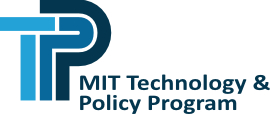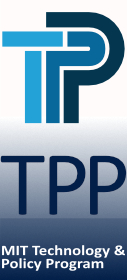
Protecting space infrastructure
Jonathan Novak TPP ’22 is a United States Air Force Academy graduate and a Second Lieutenant, 62E Developmental Engineer for the United States Space Force. At TPP, Jon was a Lincoln Labs Military Fellow with a research focus in the resiliency of proliferated satellite architectures. Jon’s thesis was awarded a TPP 2022 Thesis Prize.
What was the focus of your TPP thesis research?
The space domain is currently experiencing a major shift in the type of satellites being built and launched. Satellites are becoming smaller, cheaper, and more integrated with potentially vulnerable commercial components rather than expensive yet reliable space-grade components. My research is ultimately a combination of methods and tools that may be used to suggest policy and design implications of this paradigm shift regarding the resilience of satellite constellations against adverse solar weather radiation effects.
What sort of knowledge and disciplines did it bring together?
A lot more than I originally anticipated! As a systems engineer, it’s not uncommon to have to wear many different hats and try to integrate multiple disciplines into a cohesive sum, but this was one of the first times I experienced this first hand. Forecasting required statistics, radiation analysis required nuclear science and particle physics, radiation effects encapsulated a lot of computer engineering, and there was an extensive amount of modeling, simulating, and integrating tools which required more programming than I have ever done before. I also had to do a fair amount of studying on reliability engineering, financial modeling, satellite design, orbital mechanics, code optimization, queueing systems and, most importantly, current and suggested resilience policies.
How can it make an impact?
Space assets support critical infrastructure and resilience is a significant factor for those operating assets in space. This research helps answer the question of “If you want to make your system as resilient as possible (to solar weather radiation effects), where should you invest your next dollar?” More broadly, the paradigm described above with increasing proliferation is also observed in many other areas, such as power grids and computing, and this research can also contribute to more broadly exploring the relationship between proliferation and resilience.
Why did you choose to come to TPP?
My perception of the world has long been that we currently have the technology and resources necessary to solve most global issues. What lacks, however, is the leadership and policies necessary to translate these factors into meaningful progress. I chose TPP because it is directly oriented on addressing this gap between technical acumen and societal level stewardship.
What are you doing next?
I was sponsored by the United States Space Force to attend MIT so I will be returning to operational service in Colorado Springs. I will be serving as a developmental engineering officer working with space operators to protect and preserve vital U.S. space capabilities.
How did TPP help shape your future plans?
TPP exposed me to a plethora of global issues that extremely talented peers and colleagues are working to address. It is simultaneously motivating, humbling, and eye-opening to see both the depth and breadth of these research areas. In this way, TPP really helped me understand how I can find my role in the greater context of technology and society in order to find a path toward making a meaningful difference.


